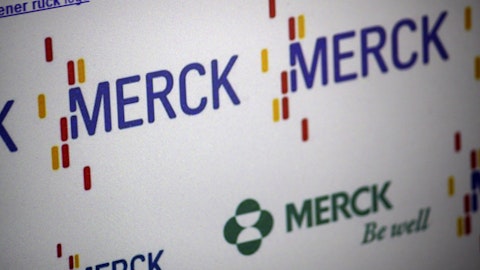Insider trading can be either legal or illegal. The illegal kind of insider trading occurs when corporate insiders or other individuals buy or sell securities based on “inside” information not available to the general public. It is quite evident why the U.S. Securities and Exchange Commission has been fighting heavy battles to put those trading on “inside” information behind bars. After all, illegal insider trading puts the average investor at a disadvantage, so it reduces public trust and confidence in financial markets. In other words, insider trading deters regular investors from entering equity markets. So why doesn’t the SEC ban all corporate insiders from buying securities (note: insiders should at least be allowed to sell exercised stock options and stock awards)?
CEOs and other high-ranked employees possess material “inside” information much of the time, so their insider purchases could always be classified as illegal. Some believe that insider trading on non-public information should not be punished. One could argue that insider trading plays an important role in increasing the efficiency of equity markets because it increases the available information about companies, which makes markets efficient. Leaving this discussion aside, let’s have a look at a set of notable insider transactions reported with the SEC on Wednesday.
At Insider Monkey, we’ve developed an investment strategy that has delivered market-beating returns over the past 12 months. Our strategy identifies the 100 best-performing funds of the previous quarter from among the collection of 700+ successful funds that we track in our database, which we accomplish using our returns methodology. We then study the portfolios of those 100 funds using the latest 13F data to uncover the 30 most popular mid-cap stocks (market caps of between $1 billion and $10 billion) among them to hold until the next filing period. This strategy delivered 39.7% gains over the past 12 months and outperformed the 24.1% gain enjoyed by the S&P 500 ETFs. Our enhanced small-cap hedge fund strategy returned more than 45% over the last 12 months and outperformed SPY by more than 30 percentage points over the last 4.5 years (see the details here).

Stuart Monk/Shutterstock.com
Newly-Appointed Director at Giant Drugmaker Buys New Stake Amid Takeover Speculations
According to our insider trading database, corporate insiders at Bristol-Myers Squibb Co (NYSE:BMY) had not purchased any shares since mid-February 2011 until this week. Theodore R. Samuels, appointed to the company’s Board of Directors in the second half of February 2017, acquired a new stake of 12,000 shares on Monday at prices varying from $56.76 to $56.81 per share. Although the purchase was mostly likely made with the purpose of meeting the company’s existing stock ownership guidelines, the mere fact that this was the first insider purchase in six years represents a positive signal.
The appointment of Mr. Samuels and two additional independent directors followed discussions between activist investor JANA Partners LLC and Bristol-Myers Squibb Co (NYSE:BMY) regarding the Board composition. The activist investor became a shareholder of the drugmaker in the fourth quarter of 2016. Shortly after JANA Partners pressured the drugmaker into adding three new directors and announcing a stock buyback deal, news emerged that billionaire activist Carl Icahn had taken a stake in the pharmaceutical giant viewing the company as a possible takeover target. Truth be told, the possibility of Bristol-Myers Squibb being a potential takeover target is old news. The shares of the drugmaker have gained 13% in the past month alone, though the stock is down 12% over the past year. Barry Rosenstein’s JANA Partners LLC added a 3.87 million-share stake in Bristol-Myers Squibb Co (NYSE:BMY) to its portfolio during the fourth quarter.
Follow Bristol Myers Squibb Co (NYSE:BMY)
Follow Bristol Myers Squibb Co (NYSE:BMY)
Receive real-time insider trading and news alerts
Let’s move on to the next page of the insider trading article, where we discuss fresh insider buying observed at two other companies.
CEO of Plains GP Holdings Buys Sizeable Block of Shares (via Offering)
The man in charge of Plains GP Holdings LP (NYSE:PAGP) snapped up a block of shares on the first day of March. Chief Executive Officer and Chairman Gregory L. Armstrong bought 50,000 Class A shares on Wednesday at a price of $31.00 apiece, a purchase that boosted his ownership stake to 500,625 shares.
Plains GP Holdings LP (NYSE:PAGP)’s only cash-generating assets at the end of December consisted of around 42% limited partner and economic interest in Plains All American Pipeline L.P. (NYSE:PAA), which provides midstream transportation, terminalling, storage, processing, fractionation and supply and logistics services. Hence, the cash flows of Plains GP Holdings are solely generated from the cash distributions received on AAP units. The shares of Plains GP Holdings are 3% in the red thus far in 2017. Iridian Asset Management, founded by David Cohen and Harold Levy, owned 4.85 million Class A shares of Plains GP Holdings LP (NYSE:PAGP) at the end of the fourth quarter.
Follow Plains Gp Holdings Lp (NASDAQ:PAGP)
Follow Plains Gp Holdings Lp (NASDAQ:PAGP)
Receive real-time insider trading and news alerts
More Insider Buying at Convenience Store Operator
One member of Murphy USA Inc. (NYSE:MUSA)’s boardroom snapped up some shares this week as well. Board member Claiborne P. Deming bought 10,000 units of common stock on Wednesday at a price tag of $64.49 each. Mr. Deming currently owns a direct ownership stake of 246,482 shares following the Wednesday purchase.
The marketer of retail motor fuel products and convenience merchandise has seen its market capitalization rise by 6% since the beginning of the year. A number of corporate insiders at Murphy USA Inc. (NYSE:MUSA) purchased shares after the company released its financial results for the three and twelve months that ended December 31. Murphy USA, which markets refined products through a network of retail gasoline stores and unbranded wholesale customers, posted net income of $221.5 million for the full-year of 2016 versus $176.3 million in 2015. The company, which has almost all its owned retail stores located near Walmart stores, managed to improve the bottom-line figure despite operating in the weakest retail fuel margin environment since 2010. There were 20 asset managers from our system invested in Murphy USA at the end of December, who accumulated around 7% of the company’s outstanding shares. Ken Griffin’s Citadel Advisors LLC reported ownership of around 131,000 shares of Murphy USA Inc. (NYSE:MUSA) in its latest 13F filing.
Follow Murphy Usa Inc. (NYSE:MUSA)
Follow Murphy Usa Inc. (NYSE:MUSA)
Receive real-time insider trading and news alerts
The discussion on the final page of the article will focus on fresh insider selling observed at two other companies.
Executive at Casino Operator Offloads Large Amount of Shares Following Earnings Miss
A member of MGM Resorts International (NYSE:MGM)’s executive team offloaded a large amount of shares earlier this week. Chief Customer Development Officer Robert H. Baldwin discarded 106,160 shares on Tuesday at prices between $26.21 and $26.30 per share. The shares were held via a trust fund called the Robert Baldwin Trust, which currently owns 29,636 shares. Mr. Baldwin, a world-class poker player, also holds a direct ownership stake of 316,044 shares. He is good at assessing the odds and the investment community should probably take notice of his recent sale.
The shares of the global player in entertainment and hospitality took a hit in mid-February when the company released a disappointing earnings report. MGM Resorts International (NYSE:MGM)’s domestic resorts, which include properties on the Las Vegas Strip, generated revenue of $1.8 billion during the fourth quarter, an increase of 17% year-over-year. Revenue per available room at the casino company’s Las Vegas Strip resorts rose by 3%. MGM Resorts posted a net income figure of $24.7 million, as compared to a year-earlier net loss of $781.4 million. Nonetheless, the bottom-line figure for the December quarter missed expectations. The company recently announced plans to expand its presence in Tokyo, as Japan appears to be on track to become the world’s second-largest casino market. The shares of MGM Resorts are up 31% in the past 12 months. Roberto Mignone’s Bridger Management owned 2.81 million shares of MGM Resorts International (NYSE:MGM) at the end of 2016.
Follow Mgm Resorts International (NYSE:MGM)
Follow Mgm Resorts International (NYSE:MGM)
Receive real-time insider trading and news alerts
Executive at Well-Known Marriott International Discards Sizeable Block of Shares
A high-ranked executive at Marriott International Inc. (NASDAQ:MAR) also unloaded a large block of shares this week. Anthony Capuano, Executive Vice President and Global Chief Development Officer, liquidated 30,000 shares on Tuesday at prices from a low of $87.42 to a high of $87.67 per share. Mr. Capuano currently owns an aggregate of 61,405 shares following the recent sale.
The worldwide operator, franchisor and licensor of hotels and timeshare properties has seen its market capitalization jump by 28% in the past year. Analysts at SunTrust Robinson Humphrey recently downgraded Marriott International Inc. (NASDAQ:MAR) to ‘Hold’ from ‘Buy’ despite raising their price target to $88 from $75. According to analysts at SunTrust, the market is already pricing in their best-case scenario, a scenario that could be quite challenging for the company to achieve. SunTrust analysts say that even in the very best case, with growth in revenue per available room of 5% next year, Marriott shares could at best reach the high $90s. Jonathon Jacobson’s Highfields Capital Management owns 10.92 million shares of Marriott International Inc. (NASDAQ:MAR) as of the end of December.
Follow Marriott International Inc (NASDAQ:MAR)
Follow Marriott International Inc (NASDAQ:MAR)
Receive real-time insider trading and news alerts
Disclosure: None





